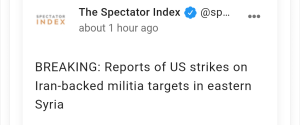"[...]The origin story of the OCCRP is interesting and deeply revealing. As per the article, it begins with a coup in the Philippines where "the non-profit outlet the Philippine Center for Investigative Journalism (PCIJ) exposed corruption by then-President Joseph Estrada, a nationalist with a standoffish relationship to the U.S. The exposé led to an impeachment inquiry, which fell short. But it also produced major street protests, leading to his ouster in a coup."
State Department official Michael Henning, stationed in the Philippines, "was a major booster of PCIJ—which has been the beneficiary of grants from the National Endowment for Democracy", itself a major instrument of US interference abroad, "relayed its effectiveness to his colleagues". According to the piece, Henning connected Drew Sullivan, who went on to co-found and head of OCCRP, with PCIJ's leaders to learn from their experience.
In other words, the U.S. had learned with this coup in the Philippines that they could achieve regime change through investigative journalism rather than military coups. As the article puts it, "The journalist's pen was not just mightier than the sword, but less embarrassing to wield on a global stage in an era where overtly U.S.-backed military coups had gone out of fashion."[....]"
....
?

